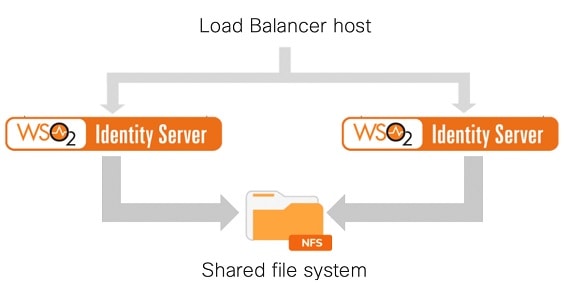Introduction
The Cisco Kinetic for Cities (CKC) is an open, extensible city data platform that integrates solutions, applications, and devices to help communities enrich constituent engagement, gather and share data more efficiently, and generate new revenue and job opportunities. The platform aggregates and organizes data from city infrastructure sensors and other data sources in a consistent, easy-to-use format and optimizes services delivery to engage residents and improve overall quality of life.
Revision History
| Date | Release version | Description |
|---|---|---|
|
2020-07-30 |
4.2, Patch 1 |
Created release notes for CKC Release 4.2, Patch 1 |
|
2020-04-08 |
4.2 |
Created release notes for CKC Release 4.2 |
|
2019-06-18 |
4.1 |
Created release notes for CKC Release 4.1 |
|
2018-05-25 |
4.0 |
Created release notes for CKC Release 4.0 |
System Requirements
Before installing the CKC platform, the system should meet the following software requirements.
|
Protocol |
Supported protocol HTTPS |
||
|
Certificate |
|
||
|
Browser |
|
The CKC platform consists of six components API Gateway, Platform Services, Real-Time Engine, Time-Series Data Engine, Dashboard, and Reporting Engine.
The following tables list the name and versions of the third-party components which are required for various CKC components in release 4.2, Patch 1.
API Gateway
| Software | Supported Configurations | Open Source? | Part of CKC Package? |
|---|---|---|---|
|
WSO2 Identity Server |
5.7.0 |
Y |
N |
|
WSO2 API Manager |
2.6 |
Y |
N |
|
Amazon Open JDK |
amazon-corretto-8.202.08.2 |
Y |
N |
|
PostgreSQL |
9.5.6 |
Y |
N |
|
Open LDAP |
2.4.48 |
Y |
N |
 Note |
CKC uses WSO2 API Manager (WSO2 API-M) for API management and WSO2 Identity Server (WSO2-IS) for Identity and Access Management. For High Availability of WSO2-IS, multiple nodes of WSO2-IS are deployed as a cluster. It is recommended to use a shared file system as the content synchronization mechanism to synchronize the artifacts among the WSO2-IS nodes, because a shared file system does not require a specific node to act as a WSO2-IS, instead all the nodes have the worker manager capabilities. As a result, all the functionalities with any of the nodes can be shared; thus, avoiding the vulnerability of a single point of failure.
For the requirement explained above, CKC 4.2 new deployment / upgrade requires a common shared file system such as Network File System (NFS) or any other shared file system. |
Platform Services
| Software | Supported Configurations | Open Source? | Part of CKC Package? |
|---|---|---|---|
|
Operating System |
CentOS 7.0 onwards |
Y |
N |
|
Amazon Open JDK |
amazon-corretto-8.202.08.2 |
Y |
N |
|
PostgreSQL |
9.5.6 |
Y |
N |
|
MongoDB |
3.4.5 |
Y |
N |
|
Rabbit MQ |
3.7.24 |
Y |
N |
|
Open LDAP |
2.4.48 |
Y |
N |
|
Vault |
1.0.3 |
Y |
N |
|
Activiti Engine |
5.22.0 |
Y |
Y |
Time Series Data Engine
| Software | Supported Configurations | Open Source? | Part of CKC Package? |
|---|---|---|---|
|
Operating System |
CentOS 7.x |
Y |
N |
|
Amazon Open JDK |
amazon-corretto-8.202.08.2 |
Y |
N |
|
PostgreSQL |
9.5.6 |
Y |
N |
|
Platform |
Cloudera Distribution Including Apache Hadoop Version 6.3.2 |
N |
N |
Real Time Engine
| Software | Supported Configurations | Open Source? | Part of CKC Package? |
|---|---|---|---|
|
Operating System |
CentOS 7.0 onwards |
Y |
N |
|
Amazon Open JDK |
amazon-corretto-8.202.08.2 |
Y |
N |
|
PostgreSQL |
9.5.6 |
Y |
N |
Dashboard
| Software | Supported Configurations | Open Source? | Part of CKC Package? |
|---|---|---|---|
|
Operating System |
Ubuntu 18.04 |
Y |
N |
|
Node.js |
8.10.0 |
Y |
N |
|
MongoDB |
3.4.5 |
Y |
N |
|
Nginx |
1.x |
Y |
N |
|
NPM package |
3.10.10 |
Y |
N |
|
Forever package |
0.15.1 |
Y |
N |
|
Browser |
• Mozilla Firefox (latest version) • Google Chrome (v42.0 and above) |
Y |
N |
Reporting Engine
| Software | Supported Configurations | Open Source? | Part of CKC Package? |
|---|---|---|---|
|
Operating System |
Ubuntu 18.04 |
Y |
N |
|
Amazon Open JDK |
amazon-corretto-8.202.08.2 |
Y |
N |
|
PostgreSQL |
9.5.6 |
Y |
N |
|
MongoDB |
3.4.5 |
Y |
N |
|
Apache Tomcat |
9.x |
Y |
N |
|
Browser |
• Mozilla Firefox (latest version) • Google Chrome (latest version) |
Y |
N |
What's New In This Release
This release contains fixes for multiple security vulnerabilities.
Open Caveats
Following is the list of known issues present in the CKC, release 4.2, Patch 1, build of the Dashboard application.
| Defect ID | Description |
|---|---|
|
CSCvt48695 |
Parking Policy: No parking zone type changes to valid parking zone type while editing policy on the applied parking spot. |
|
CSCvt66504 |
Platform Health : Dashboard Platform Health not supporting multiple Device Engine versions. |
|
CSCvt26622 |
Alerts: Retake Action on the Alerts page has slow response time. |
|
CSCvt68503 |
Create User : Default WSO2 roles are not getting assigned to the user during new user creation. |
|
CSCvt68411 |
Alerts: Update Severity button is seen on refresh, when alert’s severity is changed from higher to lower severity. |
|
CSCvs96284 |
Platform Health: Failure of WSO2 and LDAP services cannot be tracked. Log in to the application and hence access to Platform Health page is not possible for these cases. |
